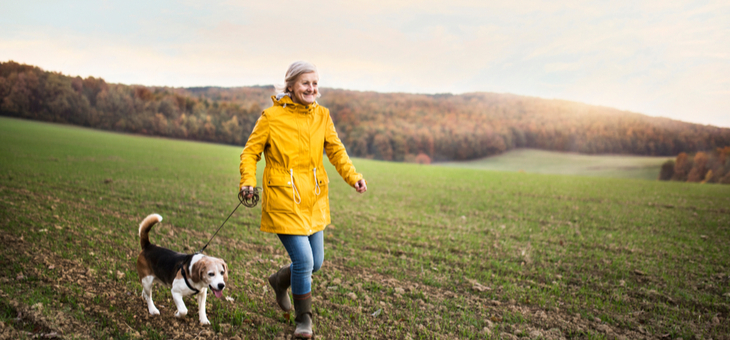It reduces anxiety, enables better sleep, helps with weight control, boosts immunity, protects your vision and promotes wellbeing. And it’s free.
What is ‘it’? It … is the great outdoors, green exercise. It could be a simple walk in the park – even a view of the park or landscape is beneficial, according to the experts – and it can change your life.
You don’t need a gym membership, a personal trainer or special equipment – just put on sensible walking shoes, grab a hat and head on out. Many parks have exercise equipment, so if your body is in reasonable shape, make use of what’s there. Try some gentle, or not so gentle, resistance exercises. Take a deep breath, leave the smartphone in your pocket, or at home, focus on what’s around you and forget about any worries. Feel the wind in your hair and the sunshine on your body, and smile and say hello to others passing by.
Consider joining – or creating – a walking group in your area if you’re keen to venture further afield.
Here’s what time in the great outdoors can do for you.
Walking outdoors helps you get that essential dose of vitamin D.
WebMD tell us that vitamin D is important for your bones, blood cells and immune system. It helps our body absorb more minerals such as calcium and phosphorus. But your body needs sunlight to make vitamin D – five to 15 minutes, two or three times a week, depending on what time of the year it is and how much protective clothing you’re wearing.
Nature lessens anxiety.
A nice view is … well, nice, but getting out is likely to have a more pronounced effect on your mood and stress levels. And when your mind is freed up, you may find you have some of your best ideas.
You’re likely to sleep better.
The outdoors helps set your sleep cycle, medicos say. “Cells in your eyes need enough light to get your body’s internal clock working right,” WebMD informs us. “Early morning sunlight in particular seems to help people get to sleep at night and this tends to be more important as you age when our eyes are less able to absorb light.”
It can improve your focus.
There’s something about the outdoors coupled with exercise that helps us concentrate better. In one study, kids with ADHD were able to concentrate better on a task after a walk in the park than they were after a walk through an urban area.
Give your immunity a boost.
Improved vitamin D production is good for your immune system, but again there’s an added bonus from outdoor activities. WebMD says that many plants put substances, including organic compounds called phytoncides, into the air, and that these seem to boost immune function. Sunlight is also known to energise special cells in your immune system called T-cells, and these help fight infection.
Wellbeing gets a lift.
As little as five minutes of outdoor activity can help improve your self-esteem – especially if you’re near water or green space. You might run, walk, cycle or just work in the garden.
It’s social.
When you get out and about, you’ll connect more with people in your community. Human contact contributes to mental health and builds or maintains a sense of connection, and of purpose.
It helps keep you at a healthy weight.
Outdoor time will help you burn calories. “But getting outside in the morning in particular may help you keep the fat off,” says WebMD. “That’s partly because the light helps balance your sleep and energy use. But there may be other reasons as well. You need 20 to 30 minutes between 8am and noon to make a difference, but the earlier you get it, the better it works.”
Remember …
Protect yourself from the sun with long sleeves, sunglasses and a hat. If you’re heading off in a remote area, obviously let someone know where you are and your expected return. And always make time to look around and take in the little things – the vegetation, the birds, the countryside.
Have you noticed that time in green spaces lifts your mood?
If you enjoy our content, don’t keep it to yourself. Share our free eNews with your friends and encourage them to sign up.
Related articles:
How eating nuts improves sex
Weight linked to brain ageing
Alcohol more toxic than you think

